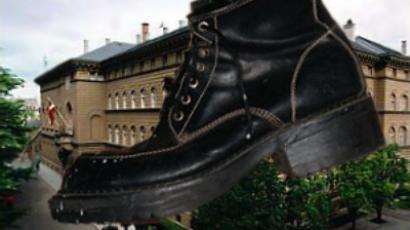Shadow of CIA secret prisons still hangs over Lithuania
ABC journalists’ allegations about secret CIA prisons for suspected terrorists near Vilnius shocked Lithuanian inhabitants. It isn’t still proven whether it was true or not, but some people say they existed.
Lithuania’s parliament voted Thursday to probe into allegations of the existence of a secret CIA prison on Lithuanian soil in 2005, RIA Novosti reports. The investigation findings are to be presented by December 22.
The launch of the parliamentary enquiry into the matter was initiated by the National Security and Defense Committee’s chairman, Arvydas Anusauskas. The committee will investigate whether suspected terrorists were transferred through Lithuania and whether they were kept under arrest there. Investigators will also try to discover if Lithuanian officials have ever discussed any issues concerning the activities of CIA secret centers.
A former high-ranking Lithuanian intelligence officer, Domas Grigaliunas, published an Internet video claiming the government at least considered setting up a secret prison.
He says: “I was a professional in the field, and I was consulted about finding up a place where our partners could keep people confidentially. I think an Al-Qaeda prison may very well have existed.”
Lithuanian authorities so far deny knowledge of covert detention centers. They also say records of flights between Afghanistan and Vilnius – the main evidence of extraordinary renditions – are not reliable.
“We don't even know if any terrorist suspects were transported through Lithuania, not to mention the existence of a prison,” claims Arvydas Anusauskas, from the National Security and Defense Committee.
Meanwhile, the country's President Dalia Gribauskaite, who was an envoy to Brussels at the time, has recently admitted she has suspicions about the existence of a covert prison in the country.
If proven, the allegations would embroil Lithuania in one of the most controversial aspects of America's War on Terror.
Algirdas Paleckis, an opposition party leader in Lithuania says, “This is too high a price to pay for our friendship with America. If these rumors are true, Lithuania's image abroad will take a huge hit.”
Human rights groups claim the United States sent suspected terrorists to so-called “black sites”, in countries where they could be tortured. Subsequent investigations came up with evidence one of those sites could have been in Lithuania.
Suspected terrorists were abducted by American agents, bundled into a plane, then flown to an airport in Lithuania.
A now-closed worldwide network of secret prisons – or black sites – allowed CIA operatives to hold anyone they suspected of terrorist activity indefinitely, without trial.
But until a clearer answer is given one way or another, a shadow will hang over Lithuania and its political leaders.













